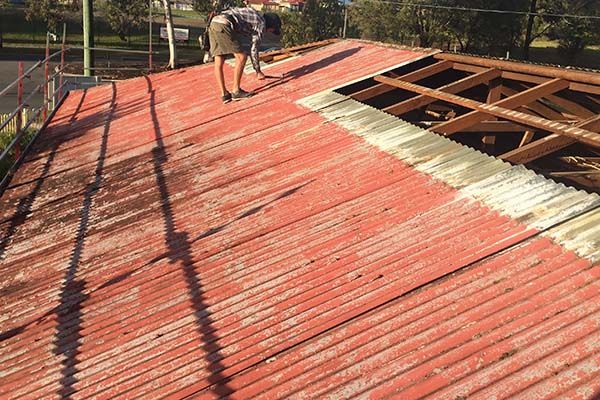Asbestos was once a popular building material due to its durability and fire resistance, but it is now well-known for its serious health risks asbestos roof restoration brisbane. For homeowners and businesses in Brisbane considering roof restoration involving asbestos, understanding the legal implications is crucial. This blog post will outline the key legal considerations to keep in mind.

1. Understanding Asbestos Regulations in Queensland
In Queensland, asbestos is strictly regulated under the Work Health and Safety Act 2011 and the Environmental Protection Act 1994. These regulations are in place to ensure the safe handling and disposal of asbestos materials. Familiarizing yourself with these laws is essential, as they dictate how asbestos must be managed, particularly during renovation or restoration projects.
2. Licensing Requirements
Before undertaking any roof restoration work that involves asbestos, it is vital to ensure that the contractors you hire are properly licensed. In Queensland, any work involving asbestos removal or disturbance must be carried out by a licensed asbestos removalist. There are different classes of licenses depending on the type and amount of asbestos to be handled:
- Class A License: For the removal of all types of asbestos.
- Class B License: For the removal of non-friable asbestos only.
Always ask for proof of licensing and check their compliance with safety regulations.
3. Risk Assessment and Management Plans
A thorough risk assessment is mandatory before commencing any restoration work. This involves identifying the presence of asbestos, assessing its condition, and determining the potential risks associated with its disturbance. Based on this assessment, a comprehensive management plan should be developed, outlining safety measures, removal procedures, and waste disposal methods.
4. Notification Requirements
Under Queensland law, certain asbestos removal projects require notification to the relevant authorities. This typically applies to larger-scale removals or if the asbestos is in a high-risk condition. It’s important to consult with your contractor to ensure that all necessary notifications are made prior to starting work.
5. Disposal of Asbestos Waste
Proper disposal of asbestos waste is critical. In Brisbane, asbestos waste must be transported and disposed of at licensed facilities. Homeowners should ensure that their contractors are following the correct procedures for waste removal, including proper packaging and documentation. Non-compliance can lead to significant legal penalties.
6. Health and Safety Obligations
Both employers and workers have health and safety obligations under the Work Health and Safety Act. This includes providing a safe working environment, ensuring proper training for workers handling asbestos, and using appropriate personal protective equipment (PPE). Failing to meet these obligations can result in legal consequences and harm to individuals involved.
7. Potential Liability Issues
If asbestos is disturbed improperly during roof restoration, there may be liability issues for both the property owner and the contractors involved. This could lead to costly legal actions or compensation claims, especially if health problems arise from exposure. It is vital to have a clear contract with your contractor that outlines responsibilities and liabilities concerning asbestos handling.
8. Insurance Considerations
When dealing with asbestos, it’s essential to have appropriate insurance coverage. Check with your insurance provider to ensure that your policy covers asbestos-related incidents. Contractors should also carry liability insurance that includes coverage for asbestos removal.
Conclusion
Asbestos roof restoration in Brisbane requires careful consideration of legal obligations and safety protocols. Understanding the regulations, hiring licensed professionals, conducting thorough risk assessments, and ensuring proper disposal of asbestos waste are all essential steps in the process. By taking these legal considerations seriously, you can help protect not only your investment but also the health and safety of everyone involved. If you’re unsure about any aspect of asbestos management, consulting with a legal or industry expert is highly recommended.